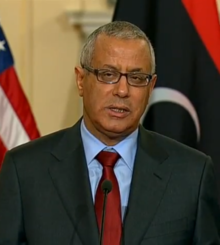Remarks by PM Meles Zenawi at the UN
This is a transcript of the remarks by the Ethiopian Prime Minister, Meles Zenawi, at the UN High-Level Meeting on 24 September:
I would like to thank the Secretary General for organizing this special meeting.
I will be very brief and hopefully frank without being impolite.
First, the situation in Sudan is the most important issue of peace and war in Africa. There is no other issue that may be compared with it. If we succeed in Sudan then it will be a major success of the continent as a whole. If we fail it will be a catastrophe for the whole continent. It is vital for the continent as a whole, nothing compares with it. That is why the African Union has deployed its best manpower to try to resolve this problem. We have our former leaders, led by one of our best leaders, President Mbeki, dealing with this issue. They have given us a very clear path out of war in the Darfur conflict. That path has been endorsed by the African Union and by the Security Council. They have also been helping us in resolving the implementation problems of the CPA. We as Africans are very grateful to all those who have cooperated with our Panel and who have continued to reinforce the effort of the Panel rather than establish parallel initiatives.
Second, while there has been a lot of progress in the implementation of the CPA, if things continue as they have done in the past, there will not be a referendum on time in southern Sudan. Let’s be very clear about that. There will not be a referendum on time in southern Sudan unless things change and change quickly. There are vital issues that have not yet been adequately addressed. There is the issue of post referendum arrangements. There is the issue of Abyei and there is the issue of borders. All three are interlinked and they need to be addressed in an interlinked fashion. They have not been addressed so far adequately and unless they are addressed we will have a breakdown of peace and we are only 100 days away from that. So business as usual is not going to work. We need a departure from the past, now. I think we need to change the process of negotiating, implementation of the CPA. Now there are a countless number of committees and subcommittees which is the normal way of delaying implementation. We need to find a more effective mechanism of negotiation. And both parties have the final responsibility to implement the CPA.
I hope my friend Salva will not mind when I reiterate what President Obama has just said: no-one can impose peace in the Sudan. No-one, not even the United States. Peace has to be developed, has to be worked for, by the two parties. The decisive role has to be theirs and theirs alone. We can only help.
And I hope my friend Ali Osman Taha will not mind when I tell him that the ultimate incentive for the Sudanese to implement the CPA is the peace and stability of their country. It is not the support of the international community. So both have to step up to the plate and live up to their responsibilities.
Third, however, without the support of the international community, there could not have been a CPA in the first instance. Yes it was IGAD which provided the framework. But the international community as a while and the United States in particular played a crucial role in bringing about the CPA. And we need that in the remaining months. We need an active and supportive role from the international community as a whole and the United States in particular. We in the region are very pleased that the U.S. has appointed a very effective Special Envoy, who has been helping do just that. But we hope that in the time limit we have, the U.S. and the international community as a whole will reinforce their efforts and make sure that their efforts are consistent with the very limited time that we have. And therefore, Your Excellency, I suggest that we revamp our process of negotiation and that all parties including the international community reinforce their support to the peace process taking into consideration the limited time we have.
I thank you Mr Chairman.







PM Meles Zenawi raises two questions that should be answered:
Are we going to have the referendum which may lead to two countries and then ask them to discuss the issue of the borders between them knowing that the issue of the borders is a very complicated because of the “OIL “?
Secondly if there are two states,then what about the “popular consultations” and to which state do the “regions” concerned belong? What right would one state have to ask another state to consult its nationals about what country they want to be part of?
Is there any way that can be acceptable to all parties, that would make this referendum peaceful and indeed fruitful to serve the interest of the people concerned on both sides?
I don’t see why a delay in the referendum is such a problem inasmuch as a lasting peace is desired and is ongoing. Delays and postponements are intrinsically a part of Sudanese political life. Development and capacity building need not stop on the count of safeguarding longterm security and peace. The southern Sudanese state is internally and externally managing its affairs and this wont be affected or challenged.
There has been a lot of mis-reporting of PM Meles’s comments at the UN, to the effect that he was advocating a postponement. The reason for publishing the transcript of his remarks here is to make it clear that he was saying no such thing: he is saying that if things continue as they are at present, for simple technical reasons, the referendum cannot be held on time in a credible manner.
Prime Minister Meles Zenawi summed up the problem of the Sudan with all it’s ramifications and dimensions when he said “..it is the most important issue of peace and war in Africa”, words reminiscent of what Arnold Toynbee wrote years ago when he said “The Sudan holds the destiny of Africa in it’s hands…”.
But unity and secession these days are being looked at from so many perspectives and angles that make them good in the eye of the beholder only, we therefore need the discerning objective analyist and it is never too late,if we think of Sudan in Africa.